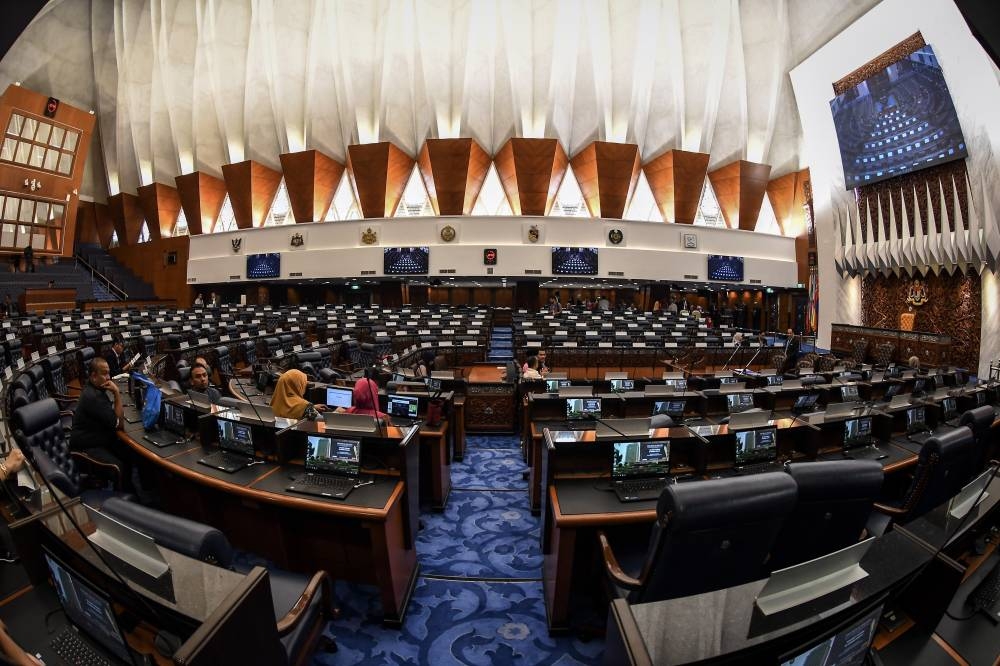DECEMBER 19 — The Malaysian Bar read with great concern Clause 4 of the MOA which spelt out a deeming provision that could result in the resignation or expulsion of Members of Parliament (“MPs”) should they not vote in favour of motions relating to matters directly affecting the confidence of the chosen government of the day.
Through an in-depth reading and analysis of Clause 4 of the MOA, this clause appears to be directly averse to the intention and wordings of Article 49A of the Federal Constitution. Article 49A of the
Federal Constitution provides that:
(1) Subject to the provisions of this Article, a member of the House of Representatives shall cease to be a member of that House and his seat shall become vacant immediately on a date a casual vacancy is established by the Speaker under Clause (3) if — (a) having been elected to the House of Representatives as a member of a political party — (i) he resigns as a member of the political party; or (ii) he ceases to be a member of the political party; or (b) having been elected to the House of Representatives otherwise than as a member of a political party, he joins a political party as a member. 3 (2) A member of the House of Representatives shall not cease to be a member of that House pursuant to this Article only by reason of — (a) the dissolution or cancellation of the registration of his political party; (b) his resignation from the membership of his political party upon election as a Speaker; or (c) the expulsion of his membership of his political party. (3) Whenever the Speaker receives a written notice from any member of the House of Representatives on the occurrence of a casual vacancy among the members of the House of Representatives under this Article, the Speaker shall establish that there is such a casual vacancy and notify the Election Commission accordingly within twenty one days from the date he received the written notice. (4) For the purposes of holding election under Article 54, such casual vacancy shall be filled within sixty days from the date the Election Commission receives the notification from the Speaker.”.

Clause 4 of the MOA is premised upon the respective constitution of each political party being a signatory member of the MOA, and it is further premised upon each political party carrying out a party whip and/or taking internal disciplinary action actions should an individual member within its party not vote for the selected motion, all in the interest of carrying out the intentions in the MOA.
This is where the problem lies. The deeming provision speaks of a ‘resignation’ or even a possible ‘expulsion’ in the event the individual MP does not vote in favour of the confidence related motions.
If MPs do not adhere to this intention, they would be required to go through an internal process within each political party, depending on the respective constitution of the party. An internal enquiry would need to be carried out — that takes time and internal due process before such a notice can be issued to the Speaker of Parliament on the vacation of the MOPs seat.
Yet, one of the concerns put forward by the Malaysian Bar prior to the amendment to the AHL through the amendments of the FC back then was the possible abuse that could arise — what if political parties engineer a way to put in place a resignation process or expulsion process within their own constitution that would circumnavigate due process? Shouldn’t the AHL include provisos to include that such resignations and expulsions should not be automatic but be postponed and subject to the MPs having sufficient legal redress through the court of law to adjudicate on the justifiability of such calls made by the political parties?
The Memorandum of Agreement appears to be a hybrid between a Confidence and Supply Agreement and a Coalition Agreement.
A CSA is where a minority government is formed and other political parties form an arrangement with the chosen party to govern the country, where there is an assurance of support for confidence of the government of the day on motions relating to important motions such as a confidence vote and budget motions, in exchange for certain other policies pushed by the joining political parties.
As the current MOA is made up of political parties that do not have a firm registered coalition party, the MOA therefore fall short of a full-blown formal coalition agreement to see through a 5 year plan of common policies.
From the legal perspective in situations faced by growing political democracy in our nation, values such as loyalty, goodwill and political stability can be achieved without compromising compliance with the rule of law — i.e. adherence to Article 49A of the Federal Constitution.
I am aware of the political nuances in which PN has raised such an issue. You are right that none of PH + BN MPs have come forward to say anything.
As a matter of good governance, the Malaysian Bar expects that the MOA was signed by the political parties in which MPs from these parties would have been consulted and agreed to the phrasing of Clause 4 of the MOA. Until they disagree, we accept that the component of political parties and MPs within them would have accepted to be bound by MOU including Clause 4.
The Malaysian Bar expresses such view with the hope that such concerted approach is to address towards political stability which is critical to our country after so many years of political factions from both divides struggling to govern our nation, causing only hardship to the rakyat.
* This is the personal opinion of the writer or publication and does not necessarily represent the views of Malay Mail.





















